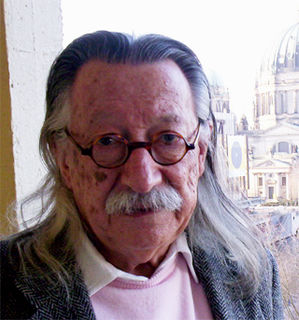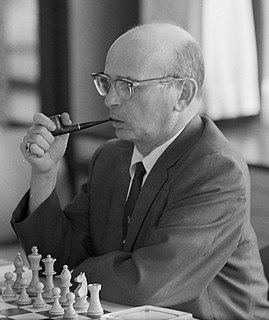A Quote by Ira Carmen
Chess computers do not sweat during time pressure and commit costly blunders. Furthermore, the strength of these programs (over and above their faultless recall processes) lies in their capacity to make relatively superficial tactical decisions with incredible speed. Positional values, long-range strategy, aesthetic judgment, and political astuteness remain staples of human performance, man vs. machine results in the foreseeable future to the contrary not withstanding.
Quote Topics
Above
Aesthetic
Blunders
Capacity
Chess
Commit
Computers
Contrary
Costly
Decisions
Furthermore
Future
Human
Incredible
Judgment
Lies
Long
Machine
Make
Man
Over
Performance
Political
Pressure
Processes
Programs
Range
Recall
Relatively
Remain
Results
Speed
Staples
Strategy
Strength
Superficial
Sweat
Tactical
Time
Values
Withstanding
Related Quotes
Man is not a machine, ... although man most certainly processes information, he does not necessarily process it in the way computers do. Computers and men are not species of the same genus. .... No other organism, and certainly no computer, can be made to confront genuine human problems in human terms. ... However much intelligence computers may attain, now or in the future, theirs must always be an intelligence alien to genuine human problems and concerns.
Chess is a unique battlefield for human minds and computers - human intuition, our creativity, fantasy, our logic, versus the brute force of calculation and a very small portion of accumulated knowledge infused by other human beings. So in chess we can compare these two incompatible things and probably make projections into our future. Is there danger that the human mind will be overshadowed by the power of computers, or we can still survive?
To play chess on a truly high level requires a constant stream of exact, informed decisions, made in real time and under pressure from your opponent. What's more, it requires a synthesis of some very different virtues, all of which are necessary to good decisions: calculatioñ, creativity and a desire for results. If you ask a Grandmaster, an artist and a computer scientist what makes a good chess player, you'll get a glimpse of these different strengths in action.
Although humans today remain more capable than machines for many tasks, by 2030 machine capabilities will have increased to the point that humans will have become the weakest component in a wide array of systems and processes. Humans and machines will need to become far more closely coupled, through improved human-machine interfaces and by direct augmentation of human performance
Remember that the machine is there to help you, because at the end of the day, you're not playing freestyle chess, advanced chess, human-plus-machine. If you are playing against other humans, it's about winning the game. The machine will not be assisting you, unless you are cheating of course. And since the machine is not there, you have to make sure that everything you learn from the computer will not badly affect the way you play the real game.
Speed is the form of ecstasy the technical revolution has bestowed on man. As opposed to a motorcyclist, the runner is always present in his body, forever required to think about his blisters, his exhaustion; when he runs he feels his weight, his age, more conscious than ever of himself and of his time of life. This all changes when man delegates the faculty of speed to a machine: from then on, his own body is outside the process, and he gives over to a speed that is noncorporeal, nonmaterial, pure speed, speed itself, ecstasy speed.































